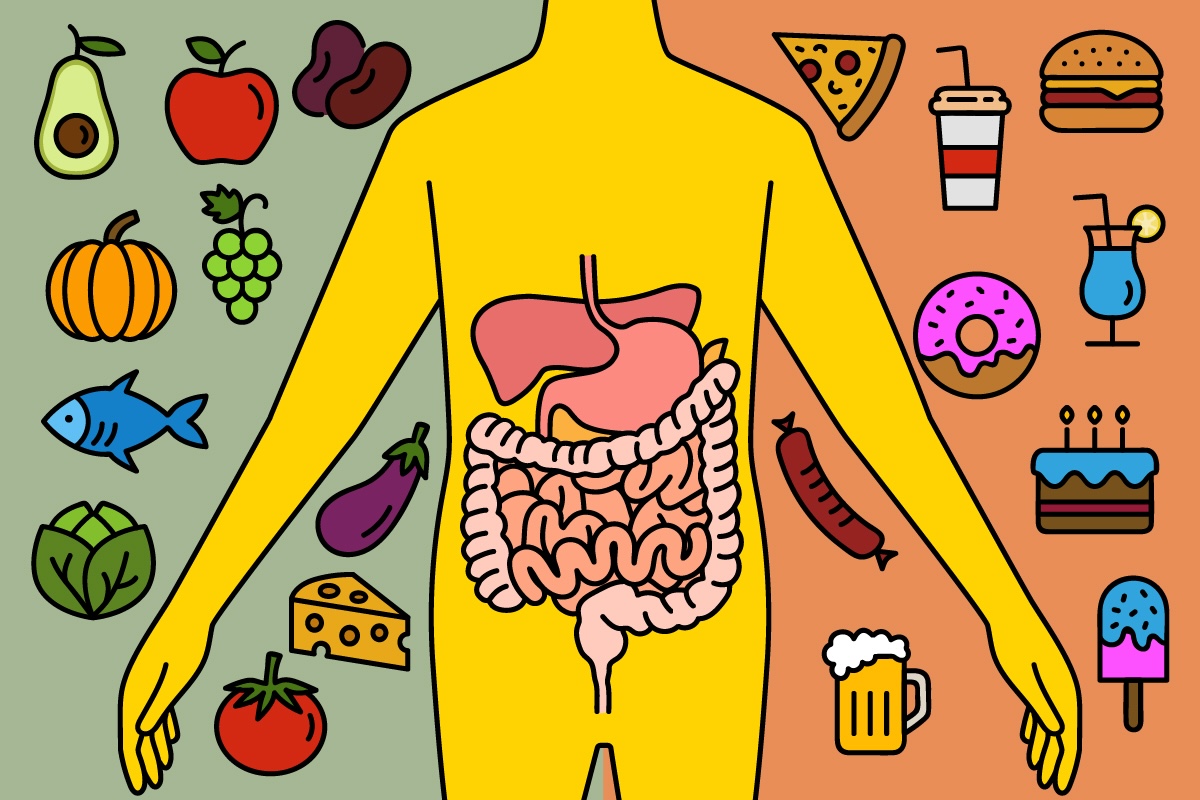News release
From:
Two studies by Flinders University expand on existing evidence that a diet rich in fruits, vegetables, whole grains, fish, legumes and dairy may protect against the risk of gastrointestinal (GI) cancers - including bowel - and improve the outcomes of these diseases.
“We’ve identified many direct links between poor diet choices and digestive cancers,” says senior author Dr Yohannes Melaku from Flinders Health and Medical Research Institute (FHMRI).
“Importantly, we found that a diet high in healthy fats and vegetables whilst limiting the consumption of sugars and alcohol could potentially reduce the risk of bowel and other cancers.
“Notably, we found that high-fibre foods such as fruits and vegetables promote healthy gut bacteria that can reduce inflammation. The emphasis on fibre and healthy fats should be an integral part of everyone’s diet.”
Gastrointestinal cancers (GI) including cancer of the oesophagus, stomach, pancreas, small bowel, colon, rectum and anus, are responsible for 1 in 4 cancer cases, and 1 in 3 cancer deaths worldwide.
“With the growing number of digestive cancers, such as bowel cancer, being diagnosed worldwide, and increasingly in people under 50 years old, it’s time for action to protect people’s digestive health.”
The findings support the World Cancer Research Fund (WCRF) and American Institute for Cancer Research (AICR) guidelines that advocate for diets rich in whole grains, vegetables, fruits, and legumes, while limiting red and processed meat, sugary drinks and processed foods.
“Having a healthy diet is one of the simplest ways to improve our overall health and reduce the risk of diseases including cancers.
“Whilst our results are promising, more work needs to be done with a greater focus on nutrition in clinical settings using nutritional biomarkers to better understand the relationship between diet and GI cancer,” says Associate Professor Amy Reynolds, an author on the paper.
“We also want to see an increase in education around healthy eating which could lead to better health outcomes for those at risk for GI cancers,” she adds.
A related article, ‘Difference in Gastrointestinal Cancer Risk and Mortality by Dietary Pattern Analysis: A Systematic Review and Meta-Analysis by Review and Meta-Analysis’ by Zegeye Abebe, Molla Mesele Wassie, Tefera Chane Mekonnen, Amy C Reynolds and Yohannes Adama Melaku was published in Nutrition Reviews journal. DOI: 10.1093/nutrit/nuae090
Multimedia




 Australia; SA
Australia; SA



